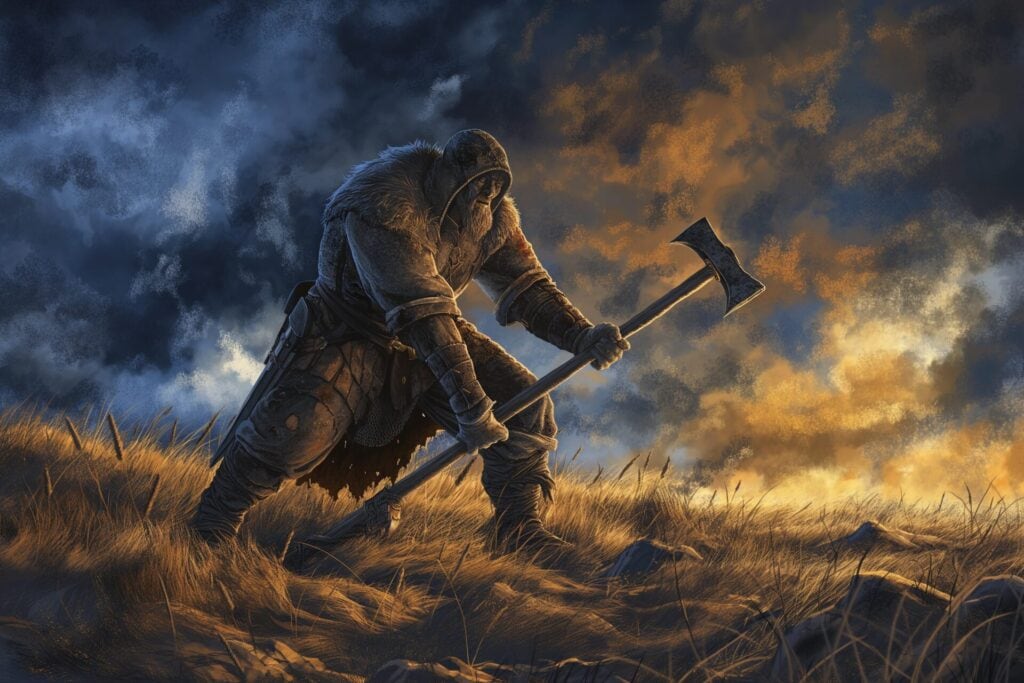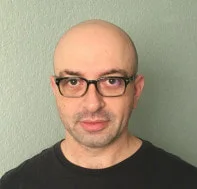5 Tips on Writing: With Max Orkis
I’m a parent and a writer. My prose and poetry have appeared in print and online journals. My screenplays have won competitions and scored official selections, finalist placements, nominations, and honorable mentions in film festivals.
For the past 10 years, I’ve been writing for a living. Half this time I’ve spent as a full-time narrative designer in mobile games and the other half as a writer and editor in tech. While lately I haven’t been working in games as a staffer, I still pick up narrative design projects whenever I can, ‘cause they’re fun.
Do I feel qualified to dispense writerly advice? Hell no.
Hooking Your Audience
How to hook your audience depends on the format and genre you’re working in, but there might be a common denominator. I feel it’s throwing your readers, viewers, or listeners into medias res, making them care, turning them into participants as early as possible.
What does this vague definition mean in practical terms?
For screenplays or, say, certain types of novel, I’m a fan of the classical approach — giving your protagonist a goal and a need (ideally, mutually exclusive so as to create an internal conflict), force her to overcome obstacles on her journey toward the goal, and have her arc out of or deeper into her flaw as she progresses. But that’s just me (kidding).
The above is an Act 1- or pilot-level aim, though. What about engaging your audience in the initial moments of its interaction with your material?
One way is to take advantage of the format’s capabilities to tickle your audience’s brains and senses and offer an immersive experience. For example, film is a visual medium (as are video games). It lends itself to audio-visual sequences, so you can give your viewers something spectacular, beautiful, heartbreaking, or funny to watch, for instance. Have these images and sounds set the scene and tone, reveal shit about the characters, walk your viewers through the story’s world, and draw them in.
What about formats like a casual mobile game or an abstract poem (I can’t believe I just put the two in the same sentence either)?
Well, even for a piece of text as basic as cut-scenes appearing in-between gameplay, a reductionist version of the type of character work I mentioned above can apply, too.
Even if there is no dialogue, you can grab your players with the humor or charm of toponyms or NPC names. As for poetry, even though it’s rarely deliberate, you can hit your readers with a striking image echoed by the opening lines’ phonology.
When it comes to novels, opening lines seem particularly important. In this format, there are also some cool devices you can play with — for example, POV, interiority, language. Literary prose is much better equipped to handle interiority, for instance, than film, and in the latter medium, there’s only one POV, whereas in a novel, you can have several. Simply put, each format comes with its own bag of tricks. Which of them you pick for your opening line depends on the story.
I generally find myself thinking about opening lines pretty often. What usually pops into my head is a character in The Plague by Albert Camus. The former keeps revising the opening line of his novel for years and never writes the rest of it. I’m not sure what the lesson is here, although it’s probably staring me right in the face, which reminds me of the closing lines of Burn After Reading:
GARDNER CHUBB: … What did we learn, Palmer.
PALMER: I don’t know, sir.
GARDNER CHUBB: I don’t fucking know either. I guess we learned not to do it again.
PALMER: Yes sir.
GARDNER CHUBB: I’m fucked if I know what we did.
Mastering Plot Development
Plot should stem from character. By definition, a story is a hero overcoming obstacles to achieve a goal. So, first, give your character a goal, then put hurdles in her way. Those should become less and less surmountable as the stakes rise.
Your protagonist’s personality and flaws should also play a part in plot development. I.e. the flaws act as some of the most serious obstacles. They should inform her decisions and her emotional transformation. In other words, because of her flaws, the character should get in her own way, at least at first.
Let’s see, what other textbook stuff can I repeat here to make myself seem wise?
Dramatic structure! I’m a big fan. Learning it has helped me immensely. As most will tell you, though, it’s good to understand it and — more or less loosely — base your outline on whichever rendition of the beat sheet you prefer. Conversely, it might make your story feel stiff, stilted, and inorganic if you stick to the prescribed plot points religiously.
Here’s a great piece of advice I once heard in an interview and will now reproduce in my own words for your benefit. The only plot guideline is — each scene needs to necessitate the next.
I riffed on that idea and outlined my latest feature-length script (the first I’ve ever written on contract) thoroughly, yet loosely in terms of structure. I thought I’d let the proverbial chips fall where they may while bearing the classical story beats in mind.
And so I did. I felt like Neo, who’s taken the red pill, relaxed into the matrix, and now just sees the code. Guess what — it seems to have worked. I’m told the beats are where they’re supposed to be, and the story flows naturally.

Effective World-Building Strategies
I believe alternate world-building should be purposeful as opposed to gratuitous. This especially concerns Sci-Fi, fantasy, speculative fiction, magical realism, horror, and paranormal. What I mean is — world-building shouldn’t happen for its own sake. Instead, there should be story reasons for it. A reality unlike ours is usually justifiable if without it it’s impossible to convey an idea, typically, the piece’s message. In my opinion, a recent example of how to do it right is Black Mirror.
Techniques for Character Development
I’ve already talked quite a bit about character development in this spiel. I suppose I could add one thing I read somewhere and happen to agree with. Ultimately, your main characters, especially the protagonist and the antagonist (if there is one), are always exploring their own identities. The question they should seek to answer is, “Who am I?”
Crafting Meaningful Decisions

Character choices should be motivated by their goals and needs, their personalities, and internal and external conflicts. An ideal type of choice is a dilemma. You want your complex and conflicted characters to be pulled in diametrically opposed directions.
One issue with choices I came across while writing my latest script is predictability. As the screenplay is an adaptation of an existing published IP, I wasn’t 100% free to structure the narrative (nor would I have shaped it any differently). I had to stay faithful to the source material. I couldn’t make my protag’s answer to his call to adventure surprising. The choice is binary, and he has to set out on his journey — otherwise, there’s no story. So, my audience will be able to guess pretty easily which choice he’s going to make. What I learned is — how he arrives at that decision can also be interesting. Or so I hope.
What are your strengths in writing and narrative design?
I’m told I can be funny. They also say I’m pretty good at character work, at dialogue, and at prose, including action lines, especially when it comes to combat sequences.
However, I’m convinced my major strengths are my desire to keep learning, my ability to listen to, sort through, and act on feedback, my discipline, and my love and respect for language.

Which games or stories have you worked on?
Most of my published stories are in my portfolio. I’ve also written some screenplays (none of them produced yet). Here are the games I’ve worked on:
Game of War, Mobile Strike, Final fantasy XV by Machine Zone
Chapters — Interactive Stories by Crazy Maple Studio, where I adapted and published 13 bestselling novels and other IP
Pocket Family, Bullet Knight, Watch Pet, Snake.io, and Stacky Bird by Kooapps
UNO, the “Japan” episode, by Mattel163
Exploring Favorites
I love too many stories to pick a favorite or even my top 10. I read books and watch movies and series all the time. It’s easier to narrow down what I’m not super into. Horror and fantasy are a couple of examples of the latter.
A Wish for Interactive Audio Stories
I’d suggest adapting classical plays into those. For example, ancient Greek comedies and tragedies could be among the candidates.
I feel it might work because a) they’re cool and exciting as there’s sex, violence, humor, satirized gods (like in The Boys), and commentary on the human condition and the imperfect human nature, b) these pieces of fiction are designed to be performed, so they could lend themselves well to the format, and c) this would be a step toward helping preserve cultural continuity and furthering general edification.
Register for our Free Writing Workshop now!
If you are interested in creating your own interactive audio story, you can apply for our free webinar! It will introduce you to our interactive story game engine, TWIST, and teach you how to use it to create interactive audio stories.
Interested in contributing to our blog series?
If you would also like to publish a blog post on our website and share your own story with interested readers, simply fill out the contact form.





